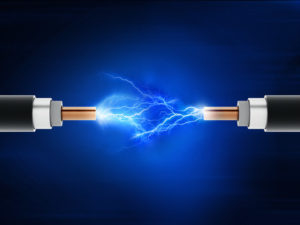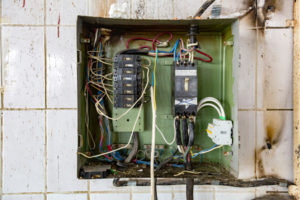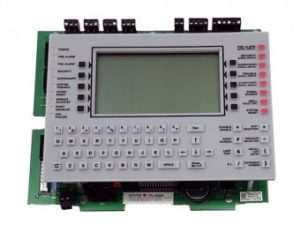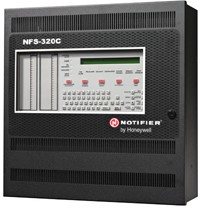You must pay attention to trouble signals resulting from ground fault error messages.
Even though your fire panel is working under this condition it is subject to internal electronic failure-no fault of the equipment.
There are many reasons why fire alarm system wiring is monitored for ground fault. Here are a few points to consider.
Firstly, what is a ground fault? A ground fault signal is when a wire has made contact with another electrical circuit or ground affecting its normal operating voltage, resistance, current and communication wave forms.


We are all in agreement that fire alarm protection and the need for notification is a 24/7 function. These systems must be 100% functional and ready to act without notice. This is why these systems monitor wiring for ground fault.
-
- Normally a signal ground fault does not disable the fire alarm circuit. However, a multi-ground fault condition can disable an alarm circuit or notification circuit. This could be limited to a single circuit, a zone or building wide. The results of multiple grounds vary.
- So, if an initiation circuit is grounded the ability to detect an alarm event may become inoperable.
- If a notification circuit is in ground fault the ability to send audible, visual or mechanical warning tones may be incapacitated.
Without a doubt, ground fault detection is important, and we want to pay attention and repair these conditions as soon as possible.

Realize that the event of the ground fault will not damage the equipment. It is the fact that while in ground fault the equipment is exposed to another electrical path subject to electrical noise, stray voltages or voltage surges. It is this electrical noise, stray voltage or surge that damage the fire alarm equipment.
Where do these voltages or signals come from?
-
-
- The utility company changing a transformer
- The utility company repairing service lines
- A brown out and voltage system trying to regulate
- A power surge, a day or night of storms with lightning
- Electrical mechanical equipment shutting down and starting up
- Careless contractors working on other systems (Elevators, HVAC, Sprinkler System, Fire Pump, Dampers)
- 120VAC power touching a conduit or building structure, or another low voltage system grounding to same conduits or circuits
-
All these acts can damage the fire alarm system while the system sits in ground fault condition.
So, in short, fix the ground faults as soon as possible. Your fire alarm system may not be protected and can lead to costly equipment replacement work.



